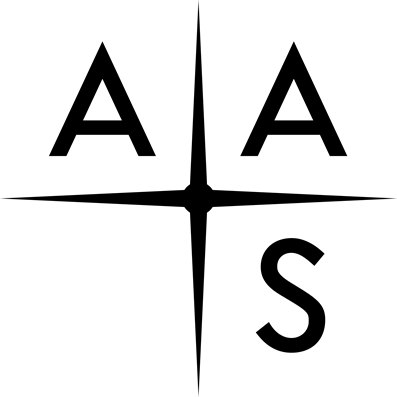241st meeting
Press Information


22 November 2022
Contacts:
Susanna Kohler
AAS Press Officer
+1 202-328-2010 x127
Kerry Hensley
AAS Deputy Press Officer
+1 202-328-2010 x138
Media Invited to 241st AAS Meeting in Seattle in January
More than 2,000 astronomers and affiliates will be gathering in Seattle, Washington, this January for the 241st meeting of the American Astronomical Society (AAS). From 8 to 12 January 2023, astronomers, students, educators, and journalists will come together at the Seattle Convention Center (705 Pike Street Seattle, WA 98101) and online for a fully hybrid, loaded schedule of scientific presentations, community-building workshops, town halls, career sessions, and more. Social media hashtag: #aas241.
The AAS offers complimentary press registration — with both in-person and virtual options available — to bona fide working journalists and public-information officers (PIOs), as explained below. A highlight of AAS 241 for press registrants will be a press tour and Q&A session at astronomy labs at the University of Washington campus on Friday, 13 January; see below for details.
AAS 241 Meeting Links
- Home Page
- Travel & Lodging Information (deadline for hotel reservations at the discounted AAS group rate: 12 December 2022 or whenever sold out)
- Press Information
Press Registration
The AAS offers complimentary press registration to bona fide working journalists and PIOs who meet the eligibility criteria, as described on the AAS press website.
Press registration deadline: Wednesday, 4 January 2023. After this date, we will be unable to process your press registration to attend the meeting. We strongly advise you register in advance to avoid last-minute complications; please send your email request to [email protected] as soon as you know you’re attending the meeting.
There will be two options available to press registrants at AAS 241:
- Virtual Participation Press Registration
This option provides online access to virtual meeting content, which will include live-streamed plenary talks, town halls, oral sessions, and press conferences; the iPoster gallery; and the AAS 241 Slack workspace. Content excluded: in-person receptions, some in-person-only Splinter Sessions and workshops, and press tour. - In-Person Press – Full Meeting Registration
This option provides admittance to all in-person meeting events, sessions, and spaces, and it includes access to all virtual content. Note that all in-person attendees must provide proof of vaccination prior to registration. We ask that you only select the full registration if you do intend to go to Seattle, so that we can obtain an approximate on-site head count in advance.
Be sure to plan ahead — press registration for AAS 241 will take a little extra time! The process will consist of three steps:
- Request complimentary press registration by sending an email message to the AAS Press Office at [email protected] with your name and media affiliation (or “freelance” if applicable). Upon confirmation of your eligibility, you’ll be sent the url of the online registration form and the required press-registration code.
- If you plan to attend in person, submit proof of your vaccination status via the secure, third-party site provided, and await a verification code that you’ll need for registration. Note that it can take up to 48 hours for vaccination verification to be processed before you will be able to register.
- Use the press registration code from step 1 and the vaccination verification code from step 2 to submit your registration for the meeting.
Full instructions and registration links are available on the AAS 241 press information page.
Press Facilities
The AAS will operate a press office in Room 309 on Level 3 of the Seattle Convention Center, with working space, printer/photocopier, power strips, and internet connectivity for reporters and PIOs.
Press conferences will be hosted daily Monday – Thursday, 9–12 January, to showcase some of the most exciting recent astronomical discoveries. We expect two briefings most days, each lasting around an hour. The briefings will be held on-site and live-streamed on Zoom for virtual meeting participation. They will also be live-streamed on the AAS Press Office YouTube channel (where you will not be able to ask questions; to do that, you will need to participate via Zoom) and archived there.
Press conferences will be held in Room 307/308 on Level 3. Briefing schedule, topics, and speakers will be announced via another media advisory closer to the meeting date; as always, the press program will be subject to change.
A dedicated press interview space, Suite A on Level 6, will be available Sunday through Thursday for use by press registrants; use the online signup sheet here to reserve this room for use at specific dates and times.
Press Tour
Press registrants will have the opportunity to join for a special tour after AAS 241 of several astronomy labs at the University of Washington (UW), spanning from data science to satellite instrumentation.
The Space & Ground Instrumentation group, led by Sarah Tuttle, focuses on ultraviolet and fiber-based instrumentation. The Virtual Planetary Laboratory, led by Vikki Meadows, is leading the way in simulating exoplanet atmospheres and beyond — especially applicable with recent results from JWST. We’ll also touch base with several groups focused on the Vera Rubin Observatory and the Legacy Survey of Space and Time (LSST), as well as UW’s eScience institute.
The tour will be held on Friday, 13 January at 10:30 am PT. We estimate it will last approximately 2 hours, followed by an opportunity to meet and talk in more detail with UW astronomers at their weekly pizza lunch at 12:30 pm. To sign up and to ensure you receive future news about this tour, please fill out the online expression of interest form.
Program Points of Interest
Division Meetings
This winter’s AAS meeting will be jointly held with three AAS divisions: the Historical Astronomy Division (HAD), the High Energy Astrophysics Division (HEAD), and the Laboratory Astrophysics Division (LAD).
The HAD meeting will include both a special session and a splinter meeting discussing recent progress of the Working Group on the Preservation of Astronomical Heritage, as well as a town hall and oral and poster sessions.
HEAD’s special sessions will include “High Energy Stellar Astrophysics in the JWST Era” and “Galactic Autopsies: Tales of Stellar Remnants.” NASA’s Goddard Space Flight Center’s Keith Gendreau and Zaven Arzoumanian will present the HEAD Bruno Rossi Prize lecture on the Neutron Star Interior Composition Explorer (NICER) instrument and the revelations it is producing about the physics of neutron stars and their environments.
The LAD meeting will include several sessions throughout the week, including “Experimental and Theoretical Needs for the James Webb Space Telescope” and “Mars Habitability.”
Prize Lectures & Invited Talks
AAS 241 will offer more than a dozen prize and invited talks by distinguished astronomers. The meeting opens on Monday morning, 9 January, with the Kavli Foundation Plenary Lecture, which will be presented by Jane Rigby (NASA's Goddard Space Flight Center) on the science performance of JWST. The closing plenary talk, on Thursday afternoon, 12 January, is the Lancelot M. Berkeley – New York Community Trust Prize lecture, to be given by Anthony Brown (Leiden University) on behalf of the Gaia collaboration. The Gaia space telescope has recorded stellar positions, distances, colors, and proper motions for nearly two billion stars in our galaxy, building the largest and most precise three-dimensional map of our galaxy.
Richard Mushotzky (University of Maryland) will present the Henry Norris Russell Lecture about our latest high-energy insights into the accreting supermassive black holes at the centers of active galaxies. Via an exchange with the Royal Astronomical Society (RAS), we’ll hear from George Efstathiou (University of Cambridge), winner of 2022 RAS Gold Medal in Astronomy for his research work as one of the architects of the standard model of cosmology.
The Dannie Heineman Prize for outstanding mid-career work in the field of astrophysics is given jointly by the AAS and the American Institute of Physics. The 2022 Heineman Prize lecture will be presented by Norman Murray (Canadian Institute for Theoretical Astrophysics), who was honored for his deep theoretical insight into astrophysical phenomena ranging from the dynamics of planetary systems to star formation and feedback in galaxies.
Rounding out the prize lectures at AAS 241, Erin Kara (MIT) will give the Newton Lacy Pierce Prize plenary overviewing the field of X-ray reverberation mapping, in which scientists use echoes of X-ray light to study how enormous black holes feed.
In addition, there will be a host of invited plenaries by distinguished speakers. On Monday, Jessie Christiansen (Caltech) will speak on the emerging picture of exoplanet populations, and a panel consisting of three board members of the Mauna Kea Stewardship and Oversight Authority (MKSOA) will discuss Maunakea stewardship. On Tuesday, we’ll hear from Allison Kirkpatrick (University of Kansas) with an overview of what we have learned about supermassive black holes in the era of the Great Observatories, and Nia Imara (University of California, Santa Cruz). On Wednesday, Chanda Prescod-Weinstein (University of New Hampshire) will describe her efforts to understand the nature of mysterious dark matter, and Sabrina Stierwalt (Occidental College) will discuss what we’ve learned about often-overlooked dwarf galaxies. Thursday will feature JWST senior project scientist John Mather (NASA), who will speak on getting JWST to space, what might we find, and what’s next; Sangeeta Malhotra (NASA), who will discuss tiny but powerful Lyman-alpha emitting galaxies; and Dan Foreman-Mackey (Flatiron Institute).
Town Halls, Special Sessions, Splinter Meetings
Additional programming includes eleven lunchtime and evening Town Hall meetings on astronomy and public policy featuring representatives from major astronomy organizations, facilities, and missions. Among the many Special Sessions and Splinter Meetings, a few examples that may be of interest to the media are:
- Early Transiting Exoplanet Science with JWST
- The Future of Transient Science with the Roman Space Telescope
- Citizen Science in the Era of Big Data
- Leveraging Ground- and Space-based Facilities to Tackle Astronomy’s Hardest Questions
- STEM Mentorship and Underrepresented Minoritized Students
A Note on Visas and COVID-19 Restrictions for Travel to the United States
Visa requirements for international travelers to the USA have become more stringent, and COVID-19 travel restrictions and measures are currently in place for both US citizens and international citizens entering the country. If you are an international traveler, you are responsible for determining the current COVID-19 travel restrictions and visa requirements that apply to you. Additional information is available from the US State Department and the Centers for Disease Control and Prevention. If you need a letter for a visa application certifying that you are registered for the meeting, please request your complimentary press registration as soon as possible; only after you complete it can the AAS Press Office send you such a letter.
AAS Press List
If you don't already receive press releases by email from the AAS Press Office, you should sign up now to guarantee that you receive future meeting advisories as well as other important announcements. To sign up for the AAS Press List at no charge, please fill out and submit the form you'll find linked from our Join the AAS Press List page. With few exceptions, only accredited journalists and PIOs are eligible to receive press releases from the AAS, as described on our press-credentials page.








